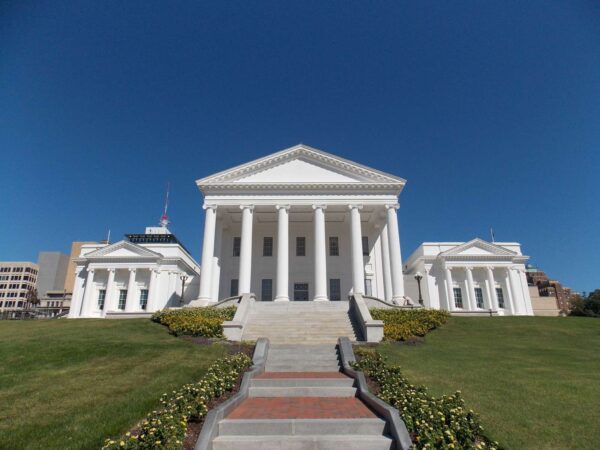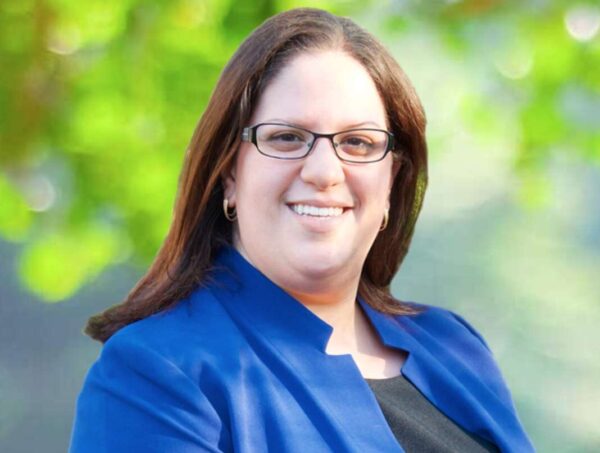
Two Virginia lawmakers are proposing sweeping measures to improve the state’s provision of special education services as criticisms from parents and the federal government over Virginia’s compliance with the Individuals with Disabilities Education Act continue.
Sponsored by Del. Carrie Coyner, R-Chesterfield, and Sen. Barbara Favola, D-Arlington, the proposals would create a statewide system to oversee the development and use of individualized education programs (IEPs) for students with special needs, require more training for educators about how to provide inclusive special education instruction, set up eight regional “special education parent support centers” and provide additional specialists to divisions.
“It’s no secret we are failing our students with disabilities in Virginia,” said Coyner during a Jan. 30 hearing on the legislation.
Federal law requires states to provide all students with disabilities a “free appropriate public education.” Among the requirements of the Individuals with Disabilities Education Act is that schools must offer an IEP and that “every child should have the chance to meet challenging objectives,” according to a 2017 U.S. Supreme Court decision.
“This bill ensures that there is monitoring of this civil rights law at the state level, and it’s very necessary,” said Kandise Lucas, a special education advocate, during a recent House Education subcommittee meeting.
Virginia has almost 181,000 students receiving special education services this school year, an increase of nearly 7,000 students from a year ago. But the state has struggled to meet the demands of students with disabilities.
Virginia has repeatedly been criticized by the federal government for problems with providing special education services. A June 2020 report by the U.S. Office of Special Education Programs determined that Virginia “does not have the procedures and practices that are reasonably designed to enable the state to exercise general supervision over all educational programs for children with disabilities.”
The Virginia Department of Education disputed some of the findings, saying the federal office included “factual inaccuracies.”
However, in a Feb. 17, 2023 letter from OSEP, the office identified “significant new or continued areas of concerns” with how the state was complying with supervision, dispute resolution and confidentiality requirements in IDEA. In particular, it concluded Virginia “does not have procedures and practices that are reasonably designed to ensure a timely resolution process” for complaints and said at least five districts were not adhering to IDEA regulations.
Individual school divisions have also been faulted by federal officials. In November 2022, the U.S. Department of Education’s Office of Civil Rights found Fairfax County Public Schools, Virginia’s largest school district, had failed (link added by FFXnow) to provide thousands of students with disabilities the education they were entitled to receive during the COVID-19 pandemic.
State reviews have also echoed many federal criticisms. In 2020, the Joint Legislative and Audit Review Commission identified major shortcomings in the state’s provision of special education services, including low-quality IEPs, a lack of knowledge among educators about how to effectively support students with disabilities and shortfalls in the Virginia Department of Education’s oversight of local divisions.
Researchers who reviewed 90 randomly selected IEPs found about half lacked goals for academic progress or improved functioning, which are required by federal law. About 37% of parents believed the services outlined in their child’s IEP were only “somewhat” or “not at all appropriate.”
A third of the special education directors interviewed by JLARC said only half or fewer administrators and general education teachers in their division had the knowledge or skills necessary to support students with disabilities. However, researchers pointed out that state regulations only required “minimal” training in special education for administrators.
Overall, the report observed Virginia students with severe, less common or multiple disabilities graduated at a rate lower than those with more common disabilities. Additionally, it found a persistent shortage of special education teachers, with many school divisions relying on underprepared teachers to fill gaps. Read More

(Updated at 11:30 p.m.) Redistricting is going to make a number of state senate races in Fairfax County very interesting this year.
Just like the House of Delegates, every Virginia State Senate seat is up for election in 2023, and like in the Virginia General Assembly’s other chamber, several primaries may be extremely competitive after the 2021 redistricting process shook up electoral boundaries.
Incumbents that could face off
In the newly-drawn District 35, which covers Annandale, Springfield, and George Mason University, two longtime incumbents could be facing off.
Sen. Dave Marsden had been the senator in District 37 since 2010, but redistricting pushed him and about 31% of his constituents into the new district. He announced his bid for reelection a year ago and has been campaigning ever since, a campaign spokesperson told FFXnow.
“He’s knocked doors in more than half of the precincts of the new SD35, and looks forward to continuing to serve the residents of Fairfax,” the spokesperson said.
Marsden’s potential primary opponent, Sen. Dick Saslaw, has been in the senate since 1980, making him its longest-serving current member. He’s also been the Senate majority leader since the Democrats took control in 2020. While redistricting kept Saslaw in the 35th District, only about one-third of his former constituents remain with him.
There have been persistent rumors that the 82-year-old might retire, but no announcement has been made yet. FFXnow reached out to Saslaw about his 2023 intentions but hasn’t heard back as of publication.
Marsden and Saslaw, if he seeks reelection, would also face newcomer and entrepreneur Heidi Drauschak, who declared her candidacy for the Democratic nomination earlier this month.
The newly-drawn District 38, which includes Herndon, Reston, and McLean, could also pair two Democratic incumbents, including one that also has been rumored to retire.
Sen. Jennifer Boysko first became a senator in 2019 after previously serving in the House of Delegates for two terms. She hasn’t officially announced anything about 2023 and didn’t respond to FFXnow’s request for comment, but said last year that she intends to run again.
However, she may have to run against Sen. Janet Howell in the Democratic primary.
Howell has served in the senate for more than two decades, representing District 32. Her former constituents make up nearly half of the new District 38, but there are also similar rumors about her retiring.
Howell didn’t respond to inquiries from FFXnow.
Boysko told FFXnow when the redistricting maps were announced last January that she holds an enormous amount of respect for Howell, calling her “the dean of the Senate” and a “true pioneer for women in government.”
Whoever wins the Democratic nomination will have to face Republican Matt Lang in the Nov. 7 general election. Lang challenged Del. Ken Plum in 2021 but lost rather handily.
He told FFXnow that he’s running to break the “blue wall” in the senate, focusing on education policy, public safety, transportation issues and financial mismanagement.
Other potential primary battles
Other primaries that are shaping up to be potentially competitive include District 36, which covers Centreville, Chantilly, Clifton, and Fair Oaks.
Stella Pekarsky, who represents the Sully District on Fairfax County’s school board, announced last week that she will challenge for the seat to “stand up” to Governor Glenn Youngkin.
The incumbent is four-term George Barker, though redistricting kept only about 6% of his former constituents in District 36. As a member of the Virginia Redistricting Commission, he came under some fire in 2021 for drawing himself back into a district that, at the time, had no other challengers. Read More

Fairfax County School Board member Stella Pekarsky is running for Virginia’s State Senate in the redrawn 36th District, potentially challenging long-time senator George Barker.
The one-term Sully District representative announced her candidacy earlier today, saying she’s running to “stand up” to Governor Glenn Youngkin.
We are at a critical turning point as a Commonwealth where the lived experiences of our elected officials matter more than ever. The new 36th district deserves a Senator who has deep roots in the community with a long record of serving its residents and the bold energy it takes to stand up to Governor Youngkin’s extreme policies. As Chair of the School Board, I led the charge when we successfully sued Youngkin to protect our children against anti-science Executive overreach just days after he was sworn into office. I am focused on the future prosperity of the 36th district and its residents. It is critical that we protect abortion access, high quality public education, expanded voting rights, champion climate change solutions, and stand up for our progressive values. I look forward to talking with my neighbors in the weeks and months ahead as I seek to represent them in Richmond.
Pekarsky was first elected to the school board in 2019, defeating the Republican incumbent Tom Wilson. She served as the school board chair last year and is a former public school teacher.
She also runs a local air charter company based in Manassas with her husband. She is also a first-generation immigrant, according to a press release.
The announcement notes that during her time on the school board, Pekarsky prioritized “closing opportunity gaps, increasing teacher and staff pay, improving title IX training for students, and requiring research-based literacy instruction.”
Last month, Pekarsky told FFXnow that she would make a decision in January regarding whether she will run for reelection to the school board.
This announcement now takes her out of the running for the Sully District seat, which will be on the Nov. 7 ballot with the school board’s 11 other seats. No candidates have come forward for the position yet.
However, with Pekarsky seeking the Democratic nomination for state senate in the 36th District, that could put her up against a long-time incumbent in the primary.
Now in his fourth term, George Barker has represented the 39th Senate District since being first elected in 2007.
With redistricting, though, only about 6% of his former constituents are in the newly redrawn 36th District, where Barker resides and would potentially run for re-election. The district covers Chantilly, Clifton, Fair Oaks and Centreville right up to the Prince William County line.
Most of Barker’s former constituents are scattered across several other districts, including the 33rd District, the 34th District, the 35th District, and the 29th District, which is now mainly centered in Prince William County.
FFXnow has reached out to Barker about his intentions for the 2023 election several times but has yet to hear back as of publication, making Pekarsky the only confirmed candidate at the moment.
Photo via StellaPekarsky.com

